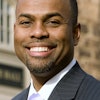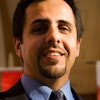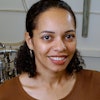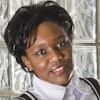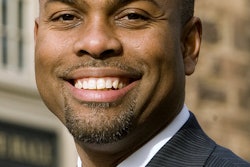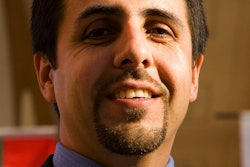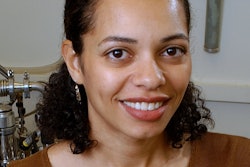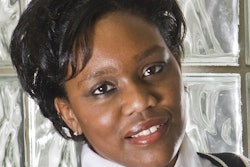When it comes to the consistently low number of STEM doctorates awarded to U.S. citizens each year, Dr. Monica F. Cox says, “we are in a crisis.” For instance, American Mathematical Society statistics reveal that only 433 of the 1,116 math Ph.D.s awarded by U.S. universities in 2004-2005 went to U.S. citizens — a 10-year low. When broken down by minorities, the numbers are even starker as of that group of 433 citizens, only 14 were Black and 12 were Hispanic.
Cox, an assistant professor of engineering education and the first African-American female engineering faculty member hired at Purdue University, says her research at Purdue has focused on enhancing engineering education at the graduate level, making it more accessible and effective for U.S.-native students like her who might not have been exposed to engineering at a young age.
“I wasn’t exposed to engineering until I was 18 years old,” Cox says. “I didn’t realize it was an option. I came from a rural community in Alabama. I was valedictorian of my class, but we didn’t have AP classes or international baccalaureate classes at all.”
Nevertheless, Cox’s interest in engineering was piqued at the age of 10 when she saw the space shuttle Challenger break up shortly after liftoff from the Kennedy Space Center near Cape Canaveral, Fla., in 1986. Cox wondered what could have been done to avoid that tragedy and later got a chance to find out while working as a researcher at NASA’s Marshall Space Flight Center in Huntsville, Ala., as a Spelman undergrad.
There she met the late Dr. Etta Falconer, one of the first Black women to earn a Ph.D. in mathematics and the former director of Spelman’s NASA Women in Science Program. Falconer encouraged Cox to apply for a GEM Fellowship from the National Consortium for Graduate Degrees for Minorities in Engineering and Science. Through that program, Cox went on to earn a master’s in industrial engineering.
Cox titled her master’s thesis “Human Error Reduction in NASA Ground Payload Operations,” and her research uncovered a number of ways to enhance numerous facets of NASA missions, down to reducing errors among individual ground controllers.
“I just realized the connection of people once again, and the people part translated into education,” Cox says. “I wanted to look within an academic environment into what was going on and make things more productive and solve problems. An engineer is a problem–solver, but I just learned how to solve problems in a different context,” she adds.
However, the further Cox took her education, the less people she saw that looked like her, she says. Though she could have pursued lucrative opportunities in the private sector after obtaining her master’s, Cox decided to further her education to see if she could help fill the pipeline with more engineers and engineering educators.
“I was one of the few African-American or minority females within a predominately male, Caucasian environment. I wanted to know why there weren’t more people who obtained graduate degrees in engineering with me,” Cox says. “I wanted to do more research on engineering education to understand why more people weren’t entering engineering, especially at the master’s and the Ph.D. levels.”
After obtaining a doctorate in 2005, Cox accepted a faculty appointment in 2006 within the newly created Department of Engineering Education at Purdue.
Cox has hit the ground running at Purdue, collaborating with a multidisciplinary group of scholars to win more than $1.6 million in federal research grants and winning the National Science Foundation Faculty Early Career Development (CAREER) Award.
Cox says she honed her multidisciplinary approach to research and teaching at Vanderbilt, which was “a very multidisciplinary community, so they valued the expertise that I brought from the math field, from industrial engineering and education. And I worked with people in psychology as well, so I did a lot with assessment and evaluation,” she says. “Once I got to my doctoral program, I understood that from a disciplinary perspective, I was not alone.”
And Dr. Heidi Diefes-Dux, associate professor of engineering education at Purdue, says Cox’s interdisciplinary approach fills an important void at Purdue, referencing a class Cox teaches titled, “Leadership Policy and Change.”
Diefes-Dux says this course represents Cox’s “passion to develop students’ understanding of policy. It’s not something we have here at Purdue, even in our College of Education, so she’s really trying to develop this area of our graduate students’ education and trying to recruit students that are not just in our department but across the College of Engineering,” Diefes-Dux says. “She’s trying to forge a piece of curriculum that’s really missing here at Purdue.”
Title: Assistant Professor, Department of Engineering Education, Purdue University
Education: Ph.D., Higher Education Administration, Vanderbilt University; M.S., Industrial Engineering, University of Alabama; B.S., Mathematics, Spelman College

